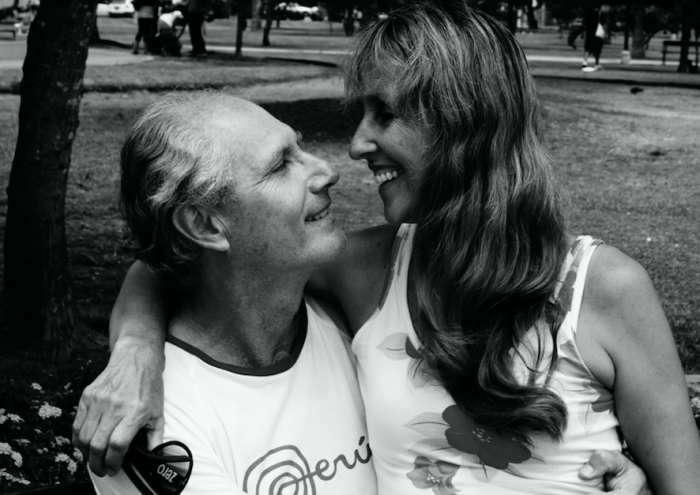In my work as a love and relationship coach, clients often share their feelings a sense of discomfort and unspoken tension with their partner.
It’s often where some of our deepest desires and yearnings quietly sit. When we don’t feel safe to express our desires and dreams to our partner, we begin to instead feel disconnected and resentful.
In his couple’s research, Dr. John Gottman, Ph.D. discovered the importance of creating shared meaning with our partner, as well as how this shared meaning can connect us emotionally.
We can get stuck in a cycle of not knowing how to express ourselves in a way that doesn’t create conflict, so we hold our feelings in and allow anger and resentment to build. This turns into a pattern that quickly creates emotional instability in a relationship.
I remember, in my own marriage, a time where I felt disconnected and hopeless. It felt as if my dreams and hopes for the future were being denied. I had so many things I wanted to do, create, and express, yet I didn’t know how to share this with my husband in a way where he could actually hear it and connect to it.
Instead, I blamed him for my unhappiness and all of my disappointments. I was subconsciously waiting for permission to fully live and made him responsible for my happiness. This led to a cycle of feeling defensive, unsupported, and disappointed.
In turn, he felt like he couldn’t make me happy.
I didn’t realize then that the more I shared and reacted to my unhappiness, the more of it I was creating.
As I started to open myself up to the concept of creating shared meaning, I fully committed to changing the way I was showing up and shifted my thinking to match what I wanted.
When we practice self-disclosure instead of defensiveness, we learn how to express the deeper desire that’s underneath the pain. This is where we have the opportunity to see where our dreams merge. This is where we start to build a new connection and learn how to compromise.
Three ways to express our deepest dreams:
1. Stop making our partner responsible for our happiness.
Our partner can’t be responsible for our happiness. This is too much pressure, and it’s unfair. It turns their desire to step up and make us happy into obligation. We can often think that the solution is in them doing something or changing a behavior—but the reality is, we can choose to be happy right now, no matter what.
We can choose to take responsibility for our life and how we show up to the relationship too. This does not apply to physical abuse, emotional abuse, addictions, or cheating.
Taking responsibility for our own happiness relates to learning how to communicate from an empowered space. It involves taking steps toward self-approval and confidence, regardless of what our partner is doing or not doing.
When we start truly owning what it is we desire and start moving toward it without putting it on our partner, they’re inspired to support us in an entirely different way.
2. Stop trying to solve the problem.
The ability to express ourselves and our emotions in a way our partner can hear is powerful.
In my own marriage, this took a lot of practice and a lot of courage. I learned to simply express what I wanted instead of trying to figure it all out right then and there.
I practiced not holding on so tight and releasing the emotions that created a sense of urgency.
I learned how to recognize the old dialogue in my head that was preventing trust and faith in the present situation.
When we let go of trying to be so solution-focused, we create the space needed for our partner to open up. This is how we create a deeper connection and shared meaning. It starts with creating a safe space for them to share and feel heard.
As I turned toward this concept and stopped demanding happiness from him, it allowed him to feel curious and safe enough to want to contribute to it again.
I learned that my power was in being open and remaining present—I didn’t have to have a solution.
3. Exposing our true self.
Sometimes, we’ll feel like we can’t tell our partner our deepest yearnings out of fear of exposing too much of ourselves, being disappointed, or fear of being vulnerable. We may not even know what it is we’re afraid of exactly.
When we’re not used to sharing in a way that doesn’t have undertones of disappointment, resentment, and blame, it can feel really scary. We’re accustomed to using those emotions for protection!
We’re not used to simply expressing ourselves in a truly naked, open, and vulnerable way.
As we practice unlayering, we start to expose the unfiltered version of ourselves. We do this by catching our desire to react, cover-up, or hide our true feelings. We instead practice exposing them without placing blame.
“I feel scared.”
“I feel embarrassed.”
“I said that because I felt defensive.”
“I want to learn more about X and didn’t know how to share it.”
“I felt insecure about sharing it.”
“I made that comment because I actually wanted to go, but felt nervous just saying so.”
As we get comfortable with sharing what’s underneath, we show the parts of ourselves that we yearn to connect with more deeply.
We then allow those deeper yearnings and dreams to be exposed and supported and stop feeling like we have to hide in order to be loved and accepted.
The more we practice sharing from this deeper space, the more our partner is inspired to contribute to and share our dreams. And it allows them to feel emotionally safe enough to share their own too.
These are the parts of us that are the most attractive and magnetic. It’s just a matter of practice and accessing the courage to share.
~












Read 0 comments and reply